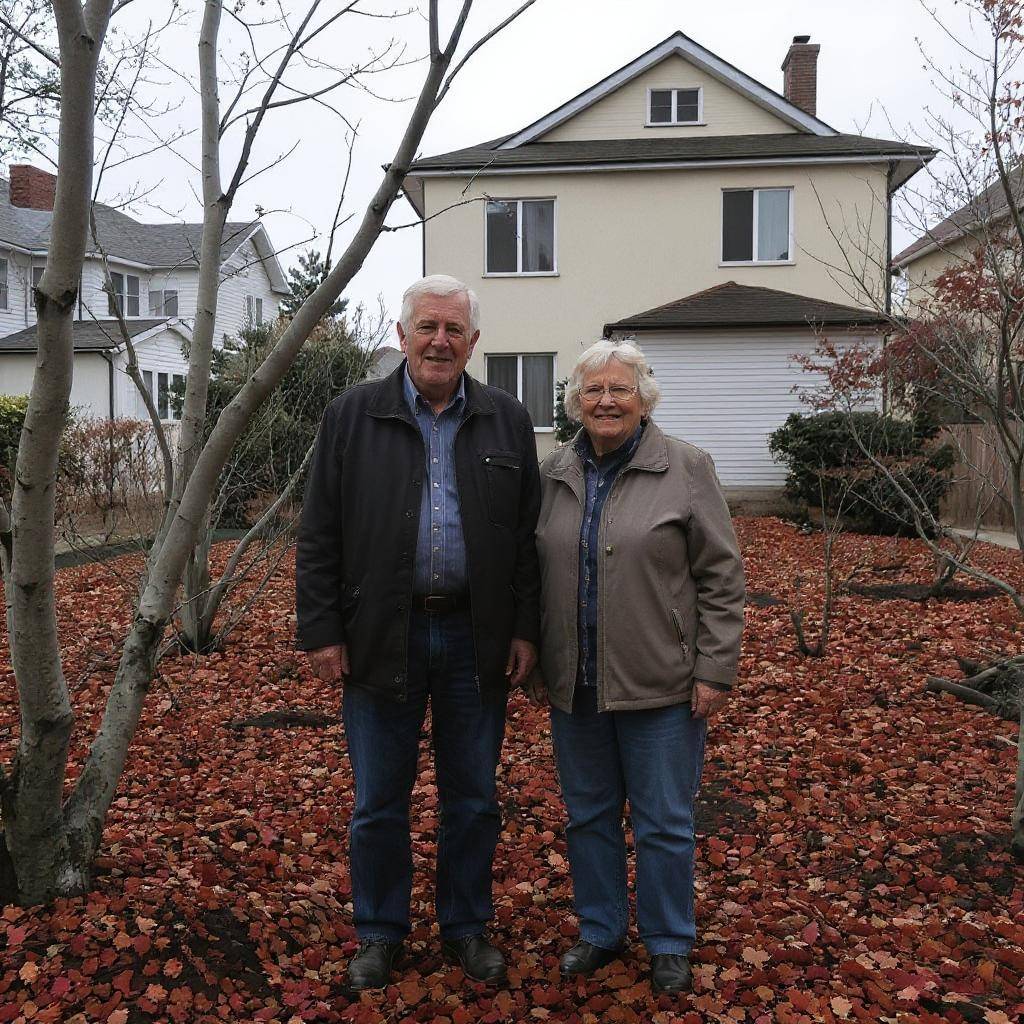For years, the land behind our house sat unused, a dry patch big enough for a house and garden, but with both of us working full-time and raising children, we had no energy to tend it. Then our elderly neighbors, Mr. and Mrs. Keller, approached us. They had been living in the neighborhood longer than anyone, always sweet and polite, and one day, Mr. Keller waved over the fence and made a friendly suggestion. “Why don’t you let us plant some fruit trees and vegetables on your land?”

he said. “It’s sad to see such good soil go to waste.” They promised to maintain it, water everything, and even share their harvests with us. It sounded fair and simple, so we said yes. Over time, that forgotten plot turned into something beautiful. Lush rows of lettuce and tomatoes filled the space, lemon trees swayed gently in the wind, and bright red chili peppers stood tall and proud. Every few weeks, Mrs. Keller would arrive at our doorstep with a cheerful smile and a basket of produce, always saying, “From your backyard to your table.” It went on like that for over three years, quietly and peacefully—until everything changed. My husband’s younger brother, Daniel, had recently married, and he and his new wife needed a place to live.
The land behind our house, still technically ours, seemed like the perfect solution. So one morning, we gently approached the Kellers to let them know we’d be needing the space back for family. “Mr. Keller,” I began carefully, “Dan is moving back, and we’d like to build a small house on the lot…” But before I could finish, Mr. Keller’s warm smile vanished. “You can’t just take it back,” he snapped. I blinked, confused. “I’m sorry?” I asked.
“We planted trees, invested money in seedlings, fertilizer, hours of labor. You want us to leave with nothing?” he said, visibly upset. Then he went inside and returned with a hand-written list of expenses—everything they claimed to have spent on the garden—and handed it to me. “You’ll need to pay us $2,100 to reclaim the land,” he said. I looked at the paper, stunned.
My hands trembled. “But we never charged you rent,” I replied. “You knew it was our land, and this was a verbal agreement.” “We turned it into something valuable,” he countered. “You want that for free?” The once-warm relationship turned cold. Mrs. Keller added her own pressure, saying, “If you force us to leave now, you’ll ruin years of growth. Fruit is still ripening. Pay us what we ask or we won’t leave peacefully.” News of the dispute spread quickly through the neighborhood. People whispered and judged. That night, my husband and I sat silently at the kitchen table, the list between us.
The bold number at the bottom—$2,146—seemed to glow ominously. “If we pay them,” my husband said, “we can avoid conflict and move on.” “But why should we pay?” I asked. “They chose to grow on our land. We didn’t charge them rent. They offered.” He sighed. “I get it. But if we fight this, they could turn everyone against us. It might drag on for months.” I bit my lip. “If we pay, we set a precedent—letting guilt and pressure dictate our decisions.” Silence filled the room. Giving in felt wrong. This wasn’t just about money—it was about being taken advantage of. “What message does that send?” I asked. “That it’s okay to guilt someone into paying for your choices?” My husband didn’t reply. He simply folded the list and set it aside.
“We don’t want a fight,” he said softly. “But we also don’t want our kids thinking it’s okay to give in when they’re wronged.” That moment sealed our decision. The next day, I contacted the Land Management Office. Two weeks later, an officer served the Kellers an official notice. The land was legally ours. No contract had ever been signed. They had no legal claim. They protested, but the officer was firm—they had thirty days to vacate or take us to civil court. They didn’t. They quietly packed their tools, harvested what they could, and abandoned the garden. The silence afterward felt strange.
No more smiling neighbors or baskets of tomatoes. I didn’t miss the vegetables—I mourned the trust. It hurt to stand up for ourselves, but worse would have been allowing ourselves to be manipulated. As Daniel began laying the foundation for his new home, I stood beside the empty plot and realized that sometimes doing the right thing brings heartache—but letting others take advantage of your kindness? That never sits right.





